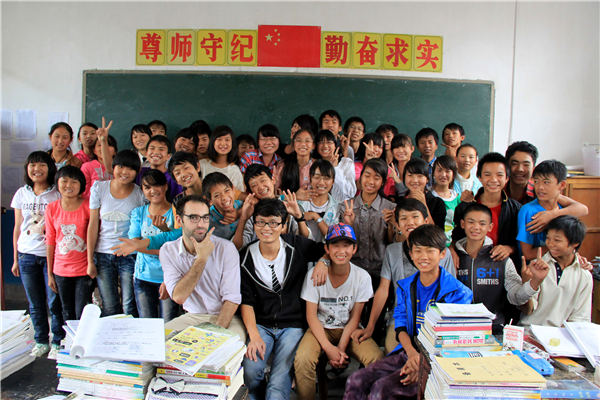Finding focus, gazing beyond


A US volunteer, who saw rural Chinese students struggle with sight, founded a nonprofit that is helping to find solutions in schools.
Andrew Shirman's farsighted life vision has led him to focus on providing eyeglasses for impoverished Chinese children.
The American from an Illinois village decided as a teenager that success was measured by distance - that is, how far he could go from where he came, in every sense.
"A lot of the folks around me ended up not doing much," Shirman recalls.
"I really wanted to see what I was made of and choose a different path."
This way of looking at life led the Education in Sight founder to teach in Yunnan province's impoverished Fengqing county through the nonprofit Teach For China after graduating from Boston College with a philosophy major. He taught middle school there for two years.
"It was the idea of pushing myself and seeing how far I could go, and how much difficulty I could endure," the 30-year-old says. "It was meaningful and challenging work."
Shirman was given a rustic room with a desk and bed in Pingcun Middle School.
He'd studied Chinese for five years before arriving but couldn't communicate well with locals.
"For the first month, I was getting up at like 5 am every single day to prepare my lessons," he says.
He prepared curriculums in English and then translated them into Chinese. He then practiced them out loud. Repeatedly.
Fast forward to 2018. Shirman has transformed from a young graduate into a social entrepreneur.
The nonprofit he founded in 2012, Education in Sight, offers glasses and eye care to rural students to improve their academic performance.
It has worked with 433 primary and middle schools in six cities, including Yunnan's Shangri-La, to offer over 178,000 eye exams and about 25,300 sets of eyeglasses.
Students who live with poverty face many challenges.
Sometimes, schools would go days without electricity, so students did homework by candlelight.
Shirman soon found vision was a common problem among students. They'd constantly lean forward and squint at the blackboard or their classmates' notes.
"They could not keep up in class because so much was going on," he says.
"If you can't keep up with that, you can't keep up with education."
Uncorrected vision is a preventable problem that's especially present in rural China.




































